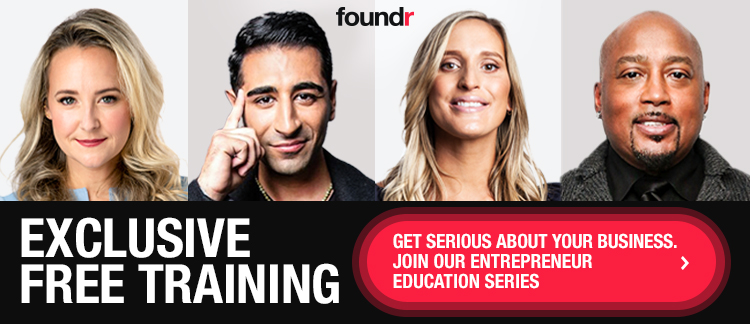We all have job interview horror stories. These experiences occur on both sides of the equation. Sometimes we’re in the hot seat, fielding absurd questions from an overzealous interviewer. Other times, we’re the ones asking the questions and end up making cringe-inducing mistakes.
Many of these problems stem from the historical structure of job interviews. The candidate timidly approaches a business like a gazelle going in for a drink from a Serengeti watering hole. But just when they begin to feel comfortable, the interviewer unleashes a tricky question that’s meant to throw them off balance.
The candidate thrashes around, trying to escape the trap. But just like any gazelle caught in the jaws of a crocodile, they ultimately perish.
Job interviews don’t have to be ambushes. And they don’t have to be case studies in power dynamics. Why not just make them conversations?
Alex Haimann, a leader in recruiting strategies, describes his approach:
It is important to note that our process varies. We aim to structure our interviews around the skills we’re looking for from each candidate and give them the opportunity to demonstrate those skills. Because no 2 candidates are the same, naturally, neither are two interviews. Prior to all of our interviews, we share the questions we’ll be asking with candidates.
Let’s review a few crucial points from Haimann’s interviewing strategy. First, the interviews are designed to help candidates showcase their relevant skills (or the lack thereof).
Second, the interviews are never universal. Each candidate deserves an experience that is customized to their own skillset and job pursuit.
Finally, the candidate receives the questions in advance. This might sound heretical to some hiring managers, but the strategy is important if you want a dialogue to take place.
Workplace Culture Questions for Employer During Interview
Job interviews should never just be about the interviewer asking questions and gathering answers from a candidate. That outdated structure implies that the only transmission of inbound information is directed at the interviewer.
In reality, each of the interviewer’s questions, dramatic pauses, and jokes reveals insights about the business’s culture.
The candidate is conducting their own analysis, whether it’s intentional or not. And the impressions they get will inform their answers to your questions and the overall feelings they take home with them long after your meeting has ended.
Recognizing this interplay should only drive you more toward establishing a dialogue with candidates. Make the meeting as much about them as it is about you. As Foundr CEO Nathan Chan explains, “It’s a two-way street–you can’t get if you don’t give.”
Perhaps there are interviews where you have a strategy for sharing highlights of your workplace culture. For example, you might know that a certain candidate is fielding multiple offers. By touting your company’s collaborative approach to problem-solving and penchant for summer barbecues, you hope to rise above the competition.
Other times, it might be easier to just revert to the old-school approach of asking a list of questions and assuming that you were the one who got all the information. But that simply isn’t possible.
“Every organization has a company culture—whether you deliberately cultivate it or not,” says Mary Kate Miller. “Building an organizational culture with intention can be the difference between a strong, healthy company culture and a toxic culture. So let’s get intentional about it.”
Great advice. And if your words and behavior are going to send distinct messages regardless of whether you mean it, why wouldn’t you want to approach the transmission of those messages with care?
14 Powerful Interview Questions for Employers
This list of job interview questions for employers is far from comprehensive. And it’s certainly not intended to be read like a checklist. Instead, it offers starting points for your next conversation with a candidate.
By considering each question’s relevance to a candidate, you’ll be able to put together a constructive collection of talking points.
1. What’s something that isn’t on your resume that you’d like us to know about you?
Just as a 30-second trailer can never do justice for an epic movie, your candidate’s resume is only a snapshot of who they are. Asking this question shows that you care as much about them as a person as you do about their alignment with the job requirements. Expressing this kind of interest encourages them to venture off the script and share something truly unique.
2. What is the most enjoyable project you’ve tackled recently?
This question allows candidates the chance to brag about their abilities and show where their passions lie. Notice that it doesn’t inquire if there has been an enjoyable project in their past. You should be screening your candidates and only meeting with the best. So you can feel confident asking questions like this that show respect to the candidate’s commitment to excellence.
3. How do you think the skills you used in that project could be applied here?
Never miss an opportunity for the candidate to show how their talents and interests can translate to your business. The legendary television show “Survivor” has applicants do a similar exercise by putting their life background and current interests through the “Survivor lens.” In this way, you can see how well the candidate understands your business and would be able to bring their best to the position.
4. What are some of the things that make you want to work here?
While some interviewers use this question to see whether the candidate has researched the company, it is more valuable as a way to gauge their potential engagement. If they can express sincere reasons for wanting to join your team, it’s likely that they’ll have helpful tailwinds that can carry them along whenever things get rough during their first 12 months on the job.
5. Why did you apply for this specific position?
If you have multiple job openings that could potentially be relevant for the applicant, there’s wisdom in finding out what compelled them to seek this specific job. The most impressive answers often contain references to both strengths that can be applied and challenges that could be embraced.
6. What are some of your unique strengths that would complement this position?
This follow-up question can help you dig deeper into why they applied for a given job and how they see themselves contributing.
7. What has made you decide to move on from your current job?
This question gives the candidate the chance to share what matters most to them in a job and you can then assess whether your business is a good match. There’s also a cultural element at play here. For example, if your business embraces a blunt style of communication, it might be refreshing to hear the candidate’s honest assessment of their current job. If they hold back details and only use vague references to “time for a change,” you might view their lack of transparency as a potential red flag.
8. What are some of your goals for the upcoming year?
It’s helpful to see how a potential transition to your business fits into a candidate’s plans. Also, this question can guide the onboarding and mentoring strategies you’re considering.
9. Where do you want to be professionally in 5 years?
Your objective is to find motivated individuals who bring energy and ideas to your business. With this question, you can begin to gauge what they’re bringing to the table. Additionally, you can verify that your business will offer the level of advancement potential to keep them engaged.
10. Where do you see yourself in 10 years?
Consider asking this follow-up question. Obviously, it’s impossible to predict where any of us will be in a decade. But you can learn a lot about a candidate’s ambition and priorities by putting things in a longer-term perspective.
11. What is your preferred management style?
It’s important to establish whether a candidate is a good fit for the leadership already in place at your company. Also, you can take cues from these types of questions to help their future leaders meet their needs in the most effective way.
12. What motivates you to do your best?
Here’s another opportunity to learn more about the candidate’s ambition and how they like to interact with leaders. You’ll always get better performance from your people when you challenge them and reward their efforts in ways that resonate most.
13. Have you interviewed for any other jobs recently?
Right off the bat, this question shines a light on the types of jobs the candidate might be applying for. If the job roles are a mixed bag, they might not be specialized enough for your position. Also, you can get a feel for the level of competition you might be facing. If there have been a number of interviews happening, you should think about expediting your decision.
14. What questions do you have for me?
If your interview has followed a conversational flow, the candidate might already have brought up all their questions prior to this point. But it’s usually a good idea to wrap up with this type of invitation so they can feel confident that they’ve clarified details in their minds and can make an informed decision regarding the position with your business.
Your Approach to Interviews
Because you’ve likely had the misfortune of being part of negative interview experiences, you’re equipped with the ultimate tool for a successful interview: empathy.
All you have to do is recall the best and worst moments from past interviews, and you should be able to provide an experience that makes the candidate feel valued and supported.
This is not to say that you should shower every candidate with compliments just to make them feel special. But your actions should convey that you appreciate their interest in your company.
Here are 5 tips for using empathy to improve the interview experience:
- Start on time: Even on the busiest days, strive for a punctual start. Interviewers who show up 20 minutes late send a negative message regarding the level of respect that exists within your culture.
- Know their name: Interviewers who need to look down at the candidate’s resume each time before using their name in a sentence just look lazy or disinterested.
- Vocalize your compliments: If you find yourself thinking a positive thought about a candidate, feel free to share it. Too often, we keep these affirmative statements bottled up where they do little good. Who knows? Your kind words could have a transformative effect on the candidate.
- Listen with intent: It’s always obvious when someone is merely biding their time before it’s their turn to speak. Use eye contact and body language to show them that you’re interested in what they’re saying. Then prove that you were listening by referencing their past comments in your questions.
- Help them know what to expect: You can help diffuse the negative power dynamics that often rule in interviews by sharing your timeline with the candidate. Let them know if you’re planning additional interviews and when you hope to make a decision. Keeping these details shrouded in mystery isn’t fair to someone who took time out of their day to come and meet with you.
Incorporating these tips into your interviews will help elevate the experience for all involved. You’ll get better responses from candidates, while also providing an affirming glimpse into the best that your business culture has to offer.
When in doubt, lead with empathy. You can’t go wrong.
More Strategies to Build a Business
If you want more strategies for building the type of business you can be proud of, Explore our free training series, our all-access membership. Taught by some of the brightest minds in modern business, they’ll help you identify hurdles, learn powerful solutions, and expedite your business success.


















